Jefford on Monday
What’s in a vintage? More, perhaps, than we think.
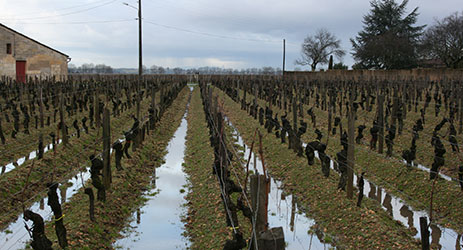
I mentioned, last week, the wild intemperance of Ontario’s winemaking climate. Do meteorological factors, there, outweigh the significance of site and slope? One producer certainly thinks so. ‘The terroir in Canada,’ François Morissette told me across the dinner table, speaking with almost glass-rattling vehemence, ‘is climate. Climate, climate, climate. Every year is completely different from every other year. As a farmer, it’s hell.’
The final week in January then took me to a sodden Bordeaux: traffic chaos provoked by flooded quaysides; monster waves pounding the coastline; standing water between the rows of even well-drained vineyards. ‘It’s been raining,” summarised Jean-Philippe Delmas of Haut-Brion with a wry smile, “since the end of the 2012 harvest.’
The 2013 Bordeaux growing season and vintage was such a difficult one that, in talking it over with producers, I almost felt like a therapist. Some needed to revisit the trauma itself: the bunches of ripe Merlot which, during the pestilential humidity of September, blanched with mould overnight. Others, by contrast, were desperate to lock on to optimism: the ‘attractive white wines’; the ‘aromatic interest and freshness’; the fact that it will be ‘the perfect vintage’ for all those who claim to be nostalgic for Bordeaux at just 12.5%. Techno-geeks eulogized their sorting machines, which shook, rattled and blew throughout the 2013 harvest.
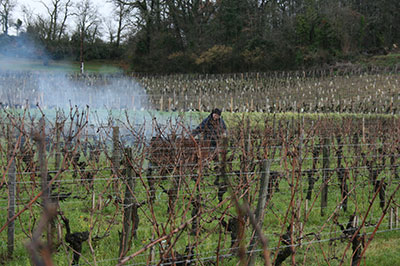
Some were guardedly political, mindful of the fact that the wines will need selling, most notably by those growers in modest appellations who find themselves in excruciating financial straits. Some, though, felt that only honesty would bring closure. Viticultural consultant and soil specialist Kees van Leeuwin, not a man given to wild exaggeration, confirmed that it was the most difficult vintage for 20 years. ‘It’s a horrible vintage,’ greed consultant Stéphane Derenoncourt. ‘It’s a vintage of the rich, since you needed to be rich to do everything which you needed to do. We still hoped for something good in August, but we didn’t get the Indian summer we needed. In the end, it was a great vintage for mushrooms. We got 8 hl/ha at Domaine de l’A, and we’ll sell one-third of that off in bulk. The sales won’t even pay the harvest costs. That’s why it’s a vintage for the rich.’
The consensus was that there would be some sort of en primeur campaign, albeit a mournful, requiem one. Robert Parker’s scrutiny will come later than usual, after an Asian detour; Jancis Robinson will be holed up in Hampstead, orchestrating the next Oxford Companion. Some producers may wait to see if they can blend up to 15% of the 2014 vintage to improve matters (blending in 2012 wouldn’t help much). I did have a chance to taste the three barrels out of 13 which will comprise 2013 Le Pin: honorable, athletic and elegant raspberry fruits which should make a well-proportioned wine. Not enough to show en primeur, though, so it will have to be bought on trust.
The chief surprise of the tastings I did in Bordeaux’s Right Bank and in Pessac-Léognan, in fact, was how well the 2011 vintage often showed: a vintage of evident ripeness for Merlot, with impressive and generously constituted tannic profiles, even if the wines lack the central-palate gush of a great year. When first tasted, they were pitched against 2009 and 2010: tough competition. Pitch them against their two younger brothers, and they look much more interesting.
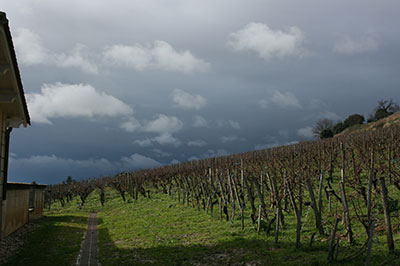
We take the notion of ‘the vintage’ so much for granted in the wine world that it’s difficult for us to gauge just how extraordinary a phenomenon, and how divisive, it is. Extraordinary – in that the world’s greatest wine regions all ride a switchback between vintage pulses which comprehensively annihilates any notion of consistency. This makes fine wine a stark contrast to the clothes, bags, cars and watches customarily advertised alongside it. It also gives wine a kind of touching humanity, as the most fallible of our treasures; and reinforces its intimacy with the natural world, which is (with alcohol) the most emotionally affecting part of its appeal.
It’s divisive, though, because there are other wine-producing regions whose vintage pulses are unquestionably less dramatic than emblematic Bordeaux, Burgundy and their like. That may be attractive at a simple economic level (catastrophic vintages are rare in Languedoc, Mendoza or Chile’s Central Valley); does it, though, mean that wines from those regions can never expect to attain the same qualitative heights as those from regions which walk the climatic tightrope? If you long for a just world, this notion seems unwelcome, and you might draw comfort from the climatically comfortable (though currently parched) Napa, but the case remains unproven.
The final speculation, of course, is exactly where climate change is taking us, and in particular whether it will lead to ever-more baroque vintages and intemperate seasons for all. Even the learned have no answers here, since ‘weather’ only becomes ‘climate’ once you can stitch the long decades together. The question may, though, lend wine vintages an added importance – as the sensorial harbingers of our future.

Columnist Introduction
Andrew Jefford is a columnist for both Decanter magazine and www.decanter.com, Jefford has been writing and broadcasting about wine (as well as food, whisky, travel and perfume) since the 1980s, winning many awards – the latest for his work as a columnist. After 15 months as a senior research fellow at Adelaide University between 2009 and 2010, Andrew is currently writing a book on Australia's wine landscape and terroirs. He lives in the Languedoc, on the frontier between the Grès de Montpellier and Pic St Loup zones.
Click here to read all articles by Andrew Jefford>>
- Follow us on Weibo@Decanter醇鉴 and Facebook
and Facebook for the latest news and updates -
for the latest news and updates -
All rights reserved by Future plc. No part of this publication may be reproduced, distributed or transmitted in any form or by any means without the prior written permission of Decanter.
Only Official Media Partners (see About us) of DecanterChina.com may republish part of the content from the site without prior permission under strict Terms & Conditions. Contact china@decanter.com to learn about how to become an Official Media Partner of DecanterChina.com.

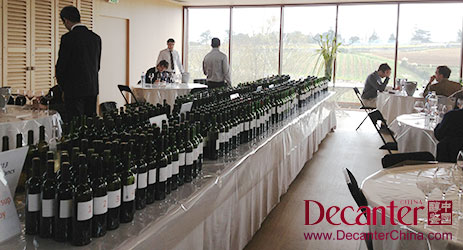
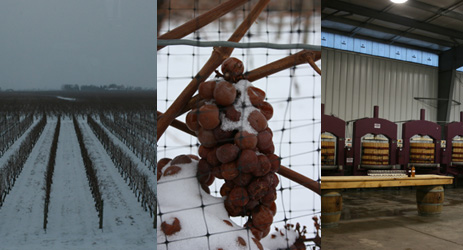
Comments
Submit